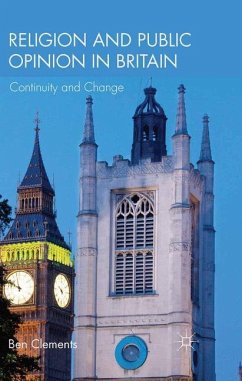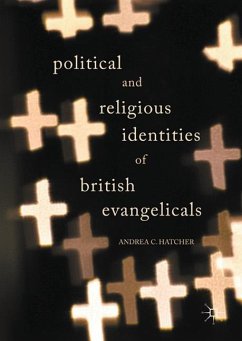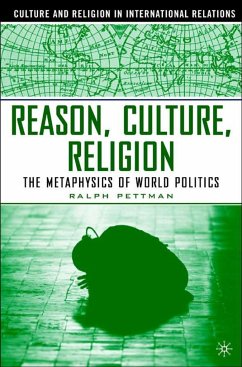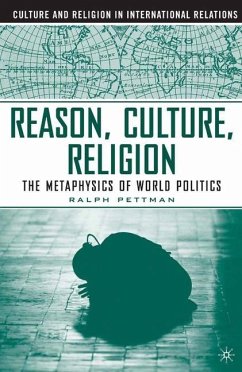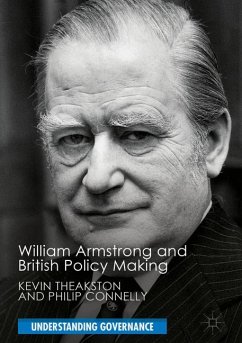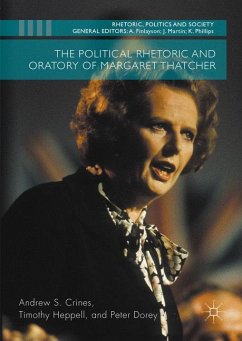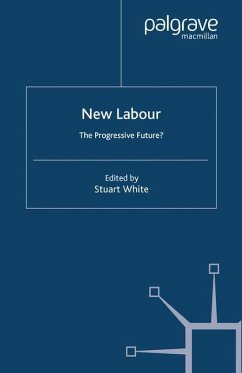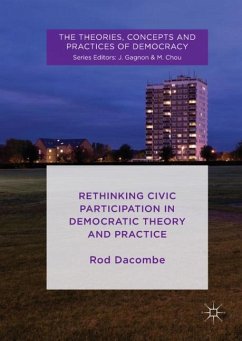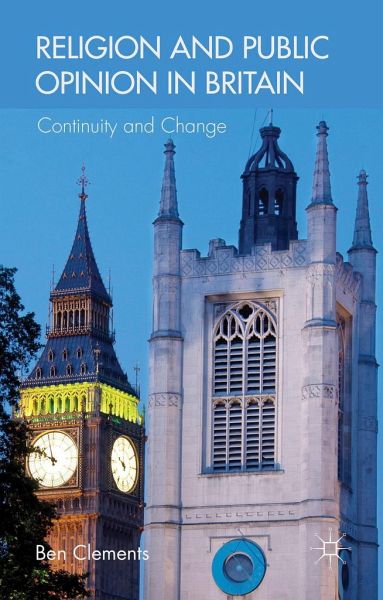
Versandkostenfrei!
Versandfertig in 6-10 Tagen
Weitere Ausgaben:

PAYBACK Punkte
19 °P sammeln!





Based on extensive analysis of surveys from recent decades, this book provides a detailed study of the attitudes of religious groups in Britain. It looks at continuity and change in relation to party support, ideology, abortion, homosexuality and gay rights, foreign policy, and public opinion towards religion in public life.
Ben Clements is a Lecturer in the Department of Politics and International Relations, University of Leicester, UK.
Produktdetails
- Verlag: Macmillan Education / Palgrave Macmillan UK / Springer Palgrave Macmillan
- Artikelnr. des Verlages: 978-0-230-29389-2
- 2015 edition
- Seitenzahl: 280
- Erscheinungstermin: 20. März 2015
- Englisch
- Abmessung: 216mm x 140mm x 18mm
- Gewicht: 498g
- ISBN-13: 9780230293892
- ISBN-10: 0230293891
- Artikelnr.: 41847537
Herstellerkennzeichnung
Libri GmbH
Europaallee 1
36244 Bad Hersfeld
gpsr@libri.de
'Much that is written about the public effects of religion is speculative. Reliable information about the social and political opinions of religious people does exist in a mass of survey data but it requires statistical skill to mine that data, a good mind to interpret it, and a clear prose style to make it available to the rest of us. Ben Clements has all three and he has performed a sterling service.'
Steve Bruce, Professor of Sociology, University of Aberdeen, UK
'This book is a veritable gold-mine for anyone interested in public opinion and the effects of religion on this. Religion, moreover, is considered variously: in terms of allegiance, activity and belief. The 'patterns' that emerge, both within denominations and
Steve Bruce, Professor of Sociology, University of Aberdeen, UK
'This book is a veritable gold-mine for anyone interested in public opinion and the effects of religion on this. Religion, moreover, is considered variously: in terms of allegiance, activity and belief. The 'patterns' that emerge, both within denominations and
Mehr anzeigen
between them, are not only fascinating but significant. Policy makers, among others, would do well to pay attention.'
Grace Davie, Professor of Sociology, University of Exeter, UK
'Weaving together public opinion data from a range of sources, Clements provides an exhaustive, detailed account of the nuanced relationship between Christianity and British politics. Religion and Public Opinion in Britain carefully traces the changing landscape including the decline of confidence in institutional and political authority and subsequent rise of secularism as well as the consistent links between denomination and political party support. Mapped over time and examined together, these consistencies and changes explain the subtleties underpinning moral-political debates over abortion, homosexuality and post-911 foreign policy. Students of British politics, and politicians worried about re-election, would do well to learn from Clements' thorough analysis of public opinion and to take heed of the powerful force Christianity continues to play in British politics.'
Angelia R. Wilson, Professor of Politics, University of Manchester, UK
Grace Davie, Professor of Sociology, University of Exeter, UK
'Weaving together public opinion data from a range of sources, Clements provides an exhaustive, detailed account of the nuanced relationship between Christianity and British politics. Religion and Public Opinion in Britain carefully traces the changing landscape including the decline of confidence in institutional and political authority and subsequent rise of secularism as well as the consistent links between denomination and political party support. Mapped over time and examined together, these consistencies and changes explain the subtleties underpinning moral-political debates over abortion, homosexuality and post-911 foreign policy. Students of British politics, and politicians worried about re-election, would do well to learn from Clements' thorough analysis of public opinion and to take heed of the powerful force Christianity continues to play in British politics.'
Angelia R. Wilson, Professor of Politics, University of Manchester, UK
Schließen
Für dieses Produkt wurde noch keine Bewertung abgegeben. Wir würden uns sehr freuen, wenn du die erste Bewertung schreibst!
Eine Bewertung schreiben
Eine Bewertung schreiben
Andere Kunden interessierten sich für


